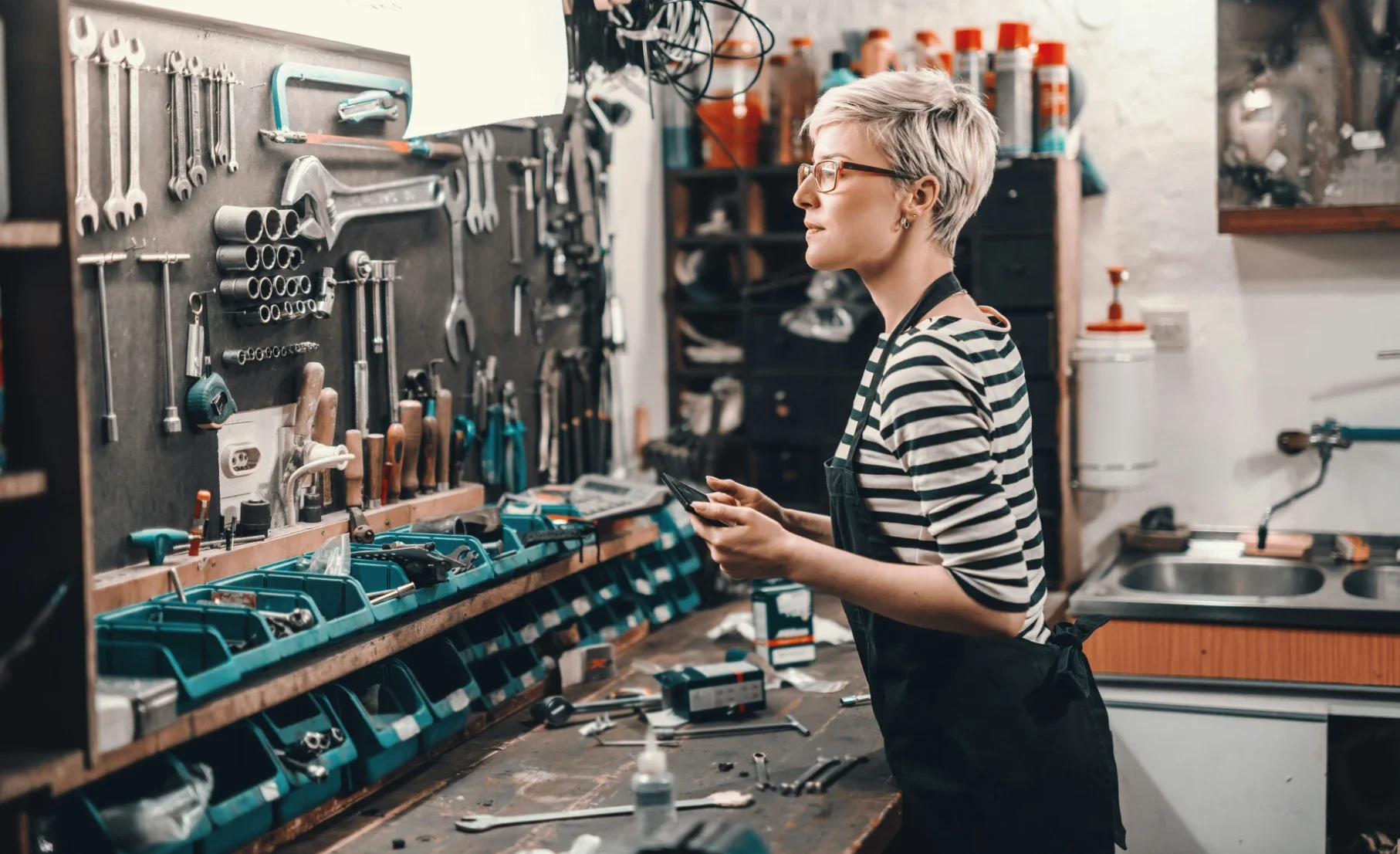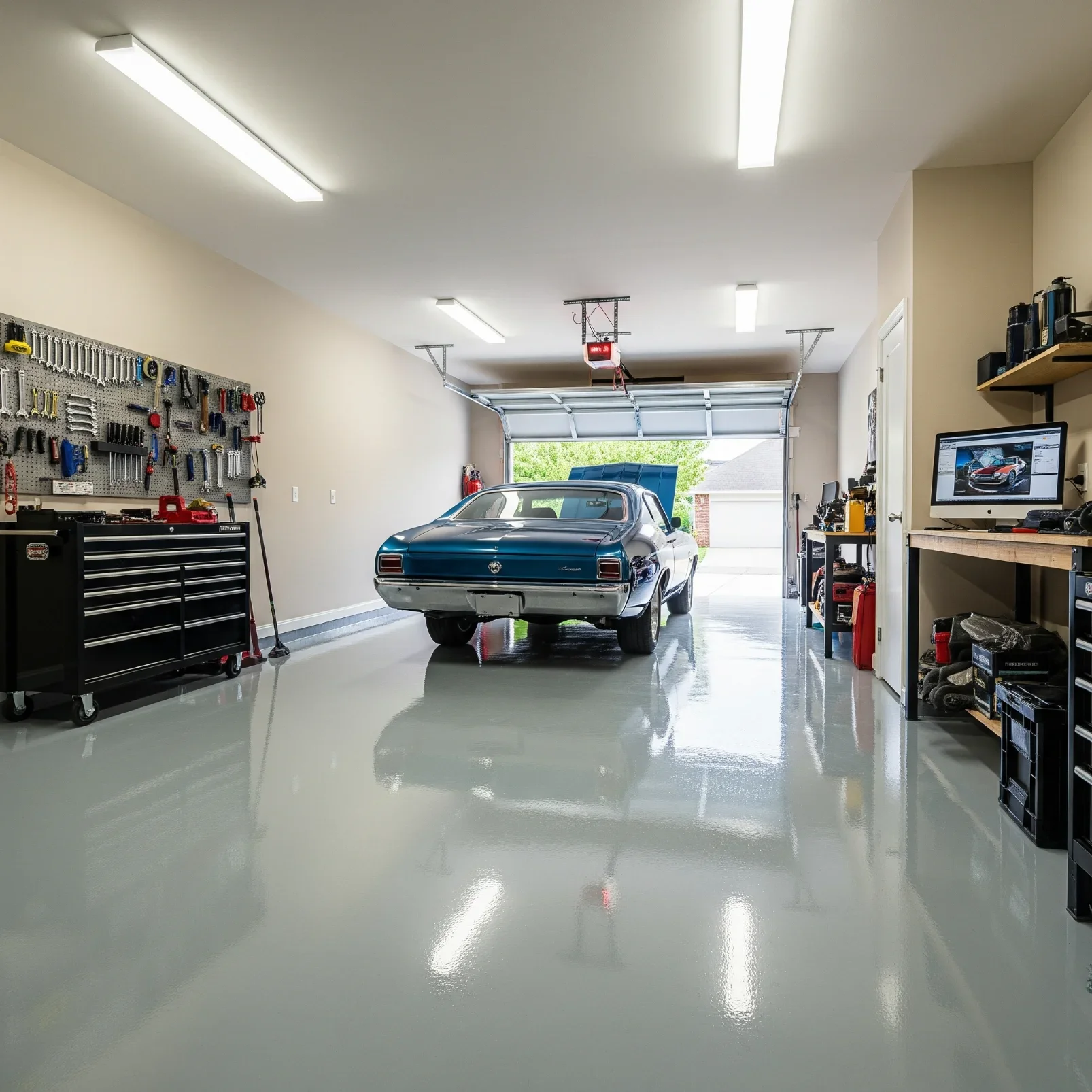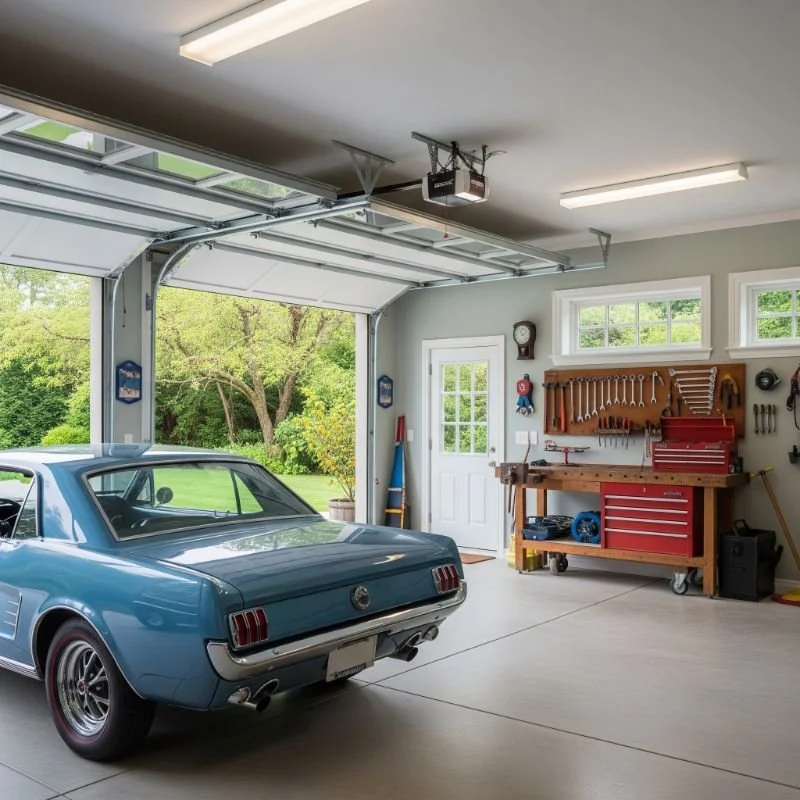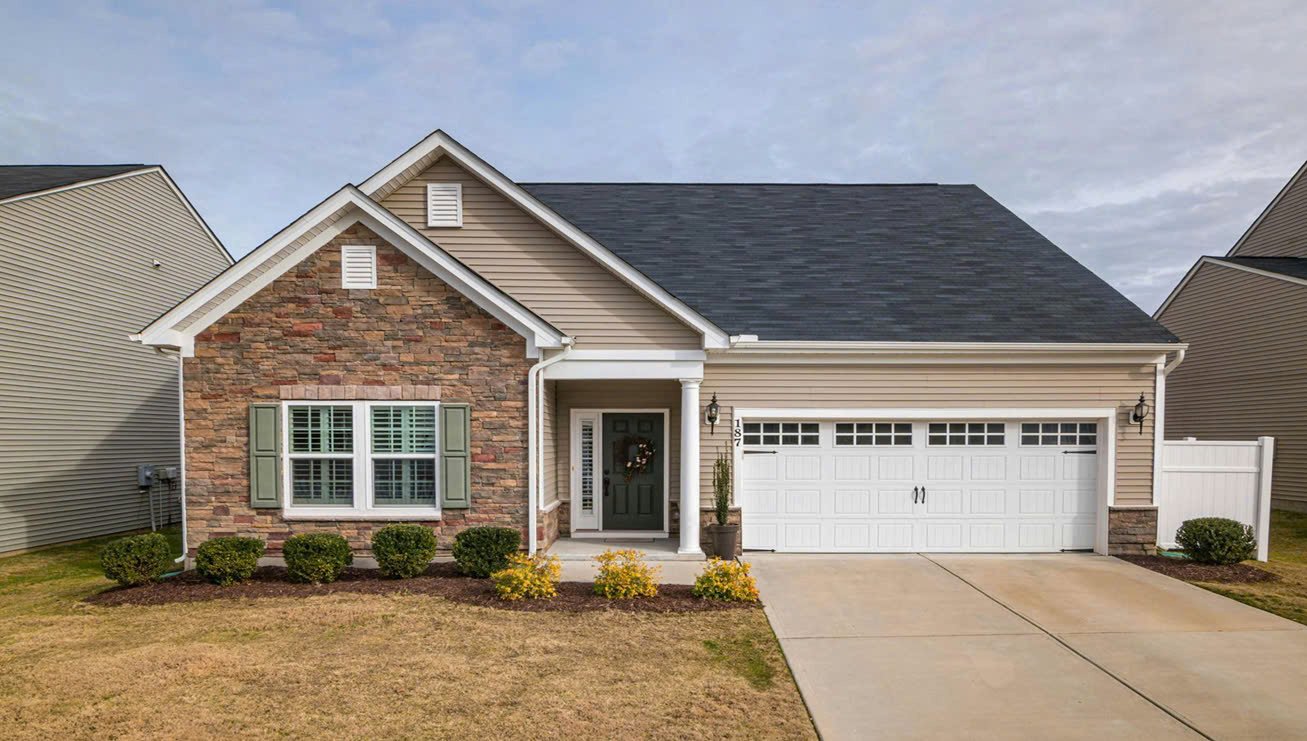Epoxy vs Diamond-Polished Concrete for Garages: Which Lasts Longer?
Compare epoxy and diamond-polished concrete for garages to see which flooring option offers better durability, longevity, and maintenance ease.
Choosing the right garage floor can save you thousands in repairs and headaches down the road. Two popular options dominate today's market: garage floor epoxy Waco contractors install and polished concrete garage floors. Both promise durability, but they deliver very different results.
The bottom line: Epoxy costs less upfront but needs more maintenance. Polished concrete garage floors cost more initially but last longer with minimal upkeep. Your choice depends on your budget and how you use your space.
Installation and Initial Costs
Epoxy Installation Professional garage floor epoxy Waco installation runs $4 to $12 per square foot. For a standard two-car garage (400-500 square feet), expect to pay $2,500 to $3,500. The process takes 2-3 days and involves surface prep, primer, base coat, decorative flakes, and topcoat application.
Polished Concrete Installation Polished concrete garage installation costs $3 to $8 per square foot. The same two-car garage runs $1,200 to $4,000. Installation takes 3-6 days as contractors grind, hone, and polish the existing concrete using diamond pads. The surface needs 28 days to fully cure.
Durability and Lifespan
Epoxy Durability The lifespan of epoxy garage floors is 5-20 years, depending on the epoxy material, epoxy type, and quality of installation and maintenance. Professional-grade epoxy with proper installation typically lasts 10-15 years in residential garages. However, epoxy surfaces may require refurbishing every three to five years in high-traffic or commercial settings.
Polished Concrete Durability polished concrete floors may only need to be serviced every 10 years. With proper care, these floors can last 20+ years without major repairs. The grinding and polishing process actually strengthens the concrete surface, making it more resistant to wear.
UV Stability Epoxy struggles with UV exposure, often yellowing or fading when exposed to sunlight from garage windows. Polyaspartic coatings provide UV protection, preventing yellowing and fading over time, unlike an epoxy floor, which can discolor when exposed to sunlight's UV rays. Polished concrete shows excellent UV stability and won't change color over time.
Winner: Polished concrete for longevity
Maintenance Costs and Requirements
Epoxy Maintenance Epoxy flooring requires regular maintenance to maintain its appearance and durability. It needs to be regularly cleaned and resealed, which can add to the overall cost of the flooring. Expect to reapply topcoats every 5-10 years at $1-3 per square foot. Professional recoating for a two-car garage costs $400-1,500.
Polished Concrete Maintenance Polished concrete requires very little maintenance, which makes it a cost-effective option in the long run. It can be easily cleaned with a damp mop or a mild cleaning solution, and it does not require waxing or sealing. Occasional re-polishing may be needed after 10-15 years, but daily maintenance involves simple sweeping and mopping.
Annual Maintenance Costs:
Epoxy: $50-150 per year (cleaning supplies, occasional repairs)
Polished concrete: $20-50 per year (basic cleaning only)
Winner: Polished concrete requires less maintenance
Slip Resistance and Safety
Epoxy Slip Resistance Modern epoxy systems include anti-slip additives and textured topcoats. Decorative flakes create a slightly textured surface that improves traction. However, smooth epoxy can become slippery when wet.
Polished Concrete Slip Resistance Polished concrete can be slippery when wet, which can be a safety hazard in certain areas. However, this can be mitigated by adding a non-slip coating. The natural texture from grinding provides some slip resistance, but high-polish finishes can be slick.
Both options can be treated with anti-slip additives during installation.
Winner: Tie (both can be made slip-resistant)
Chemical and Stain Resistance
Epoxy Performance Epoxy excels at chemical resistance. It handles oil spills, gasoline, antifreeze, and common garage chemicals without staining. The non-porous surface prevents liquids from penetrating the concrete below.
Polished Concrete Performance While polished concrete resists most stains better than raw concrete, it's more porous than epoxy. Polished concrete flooring is ideal for garages that will not be subjected to harsh chemicals and materials of extreme pH substances. Acidic substances can etch the surface over time.
Winner: Epoxy for chemical resistance
Real-World Performance: What the Experts Say
According to 2024 industry data, epoxy floor coatings comprised over 40% of the global market in 2022 due to their versatility and performance. However, professionals increasingly recommend considering polished concrete garage options for specific situations.
Professional concrete specialist Chris Lavin notes that homeowners often choose based on intended use. Light-duty garages that store cars and basic tools work well with either option. Heavy-duty workshops with frequent chemical spills favor epoxy's superior chemical resistance.
Which Should You Choose?
Choose Epoxy If You:
Have frequent chemical spills or work with automotive fluids
Want extensive customization options
Need installation completed quickly
Prioritize chemical resistance over longevity
Choose Polished Concrete If You:
Want the lowest long-term costs
Prefer minimal maintenance requirements
Value natural aesthetics over bold designs
Plan to stay in your home long-term
The Bottom Line
Both garage floor epoxy Waco installation and polished concrete garage floors offer excellent value, but they serve different needs. Epoxy provides superior chemical protection and design flexibility at the cost of more frequent maintenance. Polished concrete delivers unmatched longevity and low maintenance costs but offers less customization.
For most homeowners, polished concrete offers the best long-term value. Its minimal maintenance requirements and 20+ year lifespan make it cost-effective despite higher upfront costs. However, if your garage doubles as a workshop with heavy chemical use, epoxy's superior resistance justifies the ongoing maintenance requirements.
The smart choice depends on your specific situation, budget, and how you use your garage space.















